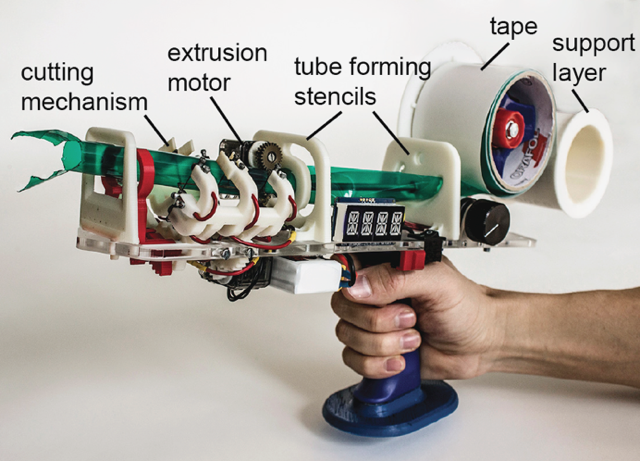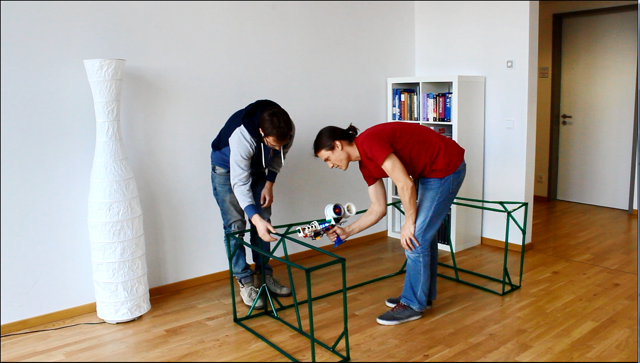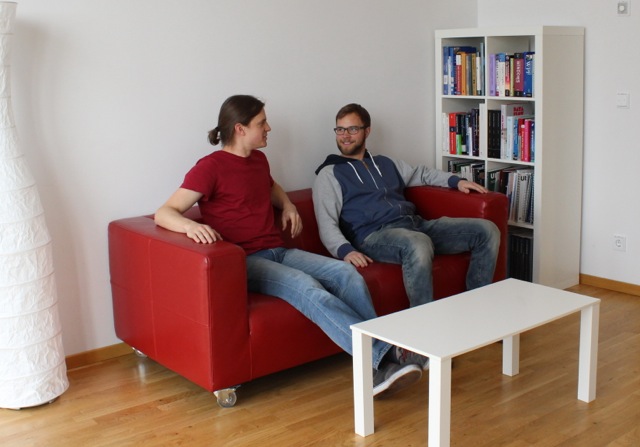A new “fun project” by the Human Computer Interaction Lab at the Hasso Plattner Institut used 3D printing to create the functional prototype of a device that can be used to create “physical sketches” of room sized objects at actual scale. Protopiper is a computer aided, hand-held “tape gun” which works in a way that is somewhat reminiscent of 3D pens, such as the 3Doodler, which are not 3D printers, but can certainly be considered “physical 3D” devices.
The main difference, and one of the most original aspects of the Protopiper, is that it does not actually extrude plastics. Instead it forms adhesive tape into tubes as its main building material, rather than extruded thermopolymers or cured photopolymers. Since the resulting tubes are hollow they offer excellent strength-to-weight ratio, thus scale well for making large structures.
Curiously enough, this “3D printed physical 3D sketching device” can be in fact be considered a miniature assembly line: the tape is drawn from the roll, shaped into a tube, sealed together, and cut off with a wing connector. By creasing the tape tubes it is even possible to use it to create simple mechanisms, such as hinges that can be used to physically draw a life-sized umbrella. Protopiper also provides tubes with adhesive “wing connectors” so that they can easily be connected to the wall or other surfaces, and better interact with the surrounding environment.
The studies conducted as a basis for the Protopiper project take into consideration several experiences relating to both 3D drawing (the 3Doodler and such), and large scale digital fabrication (like Mataerial, the project that has led to the 3D printed bridge in Amsterdam, as well as Minibuilders and Prof. Oxman’s research). In fact the objective of the Human Computer Interaction Lab’s work is to unify the virtual world of computers with the physical world of the user into a single space. This stems form the belief that 3D scanning and 3D printing technologies will allow for the solving of mechanical problems with the effectiveness and efficiency of computer science, including the ability to scale massively. Until that future actually takes place, we can still have fun physically sketching it.





